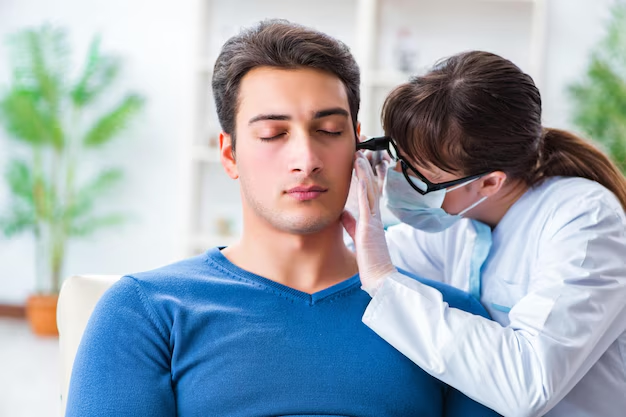Understanding Ear Infections: Signs, Symptoms, and What to Do Next
Ear infections are quite common, particularly in children, but also affect adults. They can cause discomfort, disrupt daily life, and, if left untreated, lead to complications. So, how do you know if you have an ear infection? Recognizing the signs and understanding the condition can help you take appropriate action. In this article, we'll explore the symptoms, causes, and when to seek help, ensuring you're equipped with all the knowledge you need.
What Exactly Is an Ear Infection?
An ear infection typically occurs when a virus or bacteria infects the middle ear—the section of your ear just behind the eardrum. There are different types of ear infections based on location:
- Otitis Media: Infection of the middle ear.
- Otitis Externa (Swimmer's Ear): Affects the outer ear canal.
- Inner Ear Infections: Less common but can impact balance and cause dizziness.
Recognizing the Symptoms: How Does It Feel?
Identifying an ear infection begins with recognizing its key symptoms. Here’s what to watch out for:
Common Symptoms in Adults
- Ear Pain: Ranges from mild to severe, often described as sharp or aching.
- Hearing Loss: Temporary diminished sound perception.
- Fluid Drainage: May notice discharge or fluid coming from the ear.
- Fullness in Ear: A feeling of pressure or fullness is common.
- Fever: Mild-to-moderate fever can indicate an infection.
- Balance Issues: Inner ear infections might cause dizziness.
Common Symptoms in Children
Children often present slightly different symptoms:
- Irritability: Increased fussiness or discomfort.
- Crying More than Usual: Especially when lying down.
- Pulling at the Ear: Attempt to relieve discomfort.
- Sleep Disturbances: Difficulty sleeping due to pain.
- Appetite Changes: Loss of appetite or difficulty eating.
- Ear Tugging: Frequent touching or pulling of ears.
Possible Causes: What Triggers an Ear Infection?
Understanding what causes ear infections can help in prevention:
- Colds and Respiratory Infections: These can spread to the ears.
- Allergies: Allergic reactions can block the Eustachian tube.
- Sinus Infections: May lead to fluid buildup and infection.
- Swimmer’s Ear: Prolonged exposure to water can lead to outer ear infections.
- Structural Issues: Enlarged adenoids or a cleft palate might contribute.
When to Seek Medical Help
Though ear infections can often be minor, certain situations require professional evaluation. Consult a healthcare provider if:
- Symptoms persist for more than a couple of days.
- You experience severe pain or high fever.
- You notice blood or pus-like discharge from the ear.
- Recurring infections or chronic ear problems occur.
- Balance issues or severe headaches develop.
The Diagnostic Process: What to Expect at the Doctor’s Office
When you visit a healthcare provider for a suspected ear infection, here’s what generally happens:
- Physical Examination: The doctor will use an otoscope to look inside the ear for signs of infection.
- Medical History Review: Discuss your symptoms, recent infections, and other health issues.
- Hearing Test: May be conducted if there’s significant hearing loss.
- Fluid Sample: Rarely, a sample of discharge might be taken for analysis.
These diagnostics help determine the type and severity of the infection, guiding treatment options.
Managing and Preventing Ear Infections
While medical intervention is crucial in some cases, understanding management and prevention strategies can help reduce the risk of ear infections.
Home Care and Management
- Warm Compresses: Applying a warm cloth to the ear helps soothe pain.
- Over-the-counter Pain Relievers: Medications like acetaminophen or ibuprofen can reduce pain and fever.
- Hydration and Rest: Drinking plenty of fluids and getting ample rest support recovery.
Preventive Measures
- Avoid Smoking: Smoke can irritate the Eustachian tube.
- Practice Good Hygiene: Washing hands regularly reduces the spread of infections.
- Manage Allergies: Keeping allergies under control can prevent related infections.
- Be Cautious with Water: Use earplugs when swimming to prevent Swimmer’s ear.
Living with Chronic Ear Infections
For individuals dealing with chronic ear infections, lifestyle adjustments and consistent monitoring are key:
- Regular Check-ups: Frequent visits to a healthcare provider help manage ongoing issues.
- Hearing Assessments: Regular tests to ensure hearing is not impacted.
- Understanding Triggers: Identifying and minimizing exposure to known triggers.
- Consideration of Surgical Options: Procedures like ear tube surgery might be considered under medical guidance.
Conclusion
Ear infections, though common and often manageable, can significantly affect daily life and health. Recognizing symptoms early and understanding the causes and risk factors are crucial steps in addressing the issue. While following preventive measures can help reduce the likelihood of infections, it’s important to seek medical advice when necessary to ensure appropriate care. With the right knowledge and precautions, managing ear infections becomes a more straightforward process.
Quick Takeaways: Ear Infection Essentials 🌟
- Symptoms 📌: Look for ear pain, hearing loss, fluid drainage, and fever.
- Causes: Often follow colds, allergies, or water exposure.
- Seek Help: If symptoms persist >2 days, high fever, or discharge occurs.
- Home Care Remedies: Warm compress, hydration, and pain relief.
- Prevention Tips: Avoid smoking, practice hygiene, manage allergies. 🧼
- Chronic Management: Regular check-ups and potential surgical options. 🩺
By understanding these elements, you're better equipped to handle ear health with confidence and care.

Related Articles
- Are Ear Infections Contagious
- Can Adults Get Ear Infections
- Can Amoxicillin Treat Ear Infections
- Can An Ear Infection Cause a Sore Throat
- Can An Ear Infection Cause Diarrhea
- Can An Ear Infection Cause Head Pain
- Can An Ear Infection Cause Jaw Pain
- Can An Ear Infection Cause Teeth To Hurt
- Can An Ear Infection Cause Vomiting
- Can An Ear Infection Heal On Its Own
